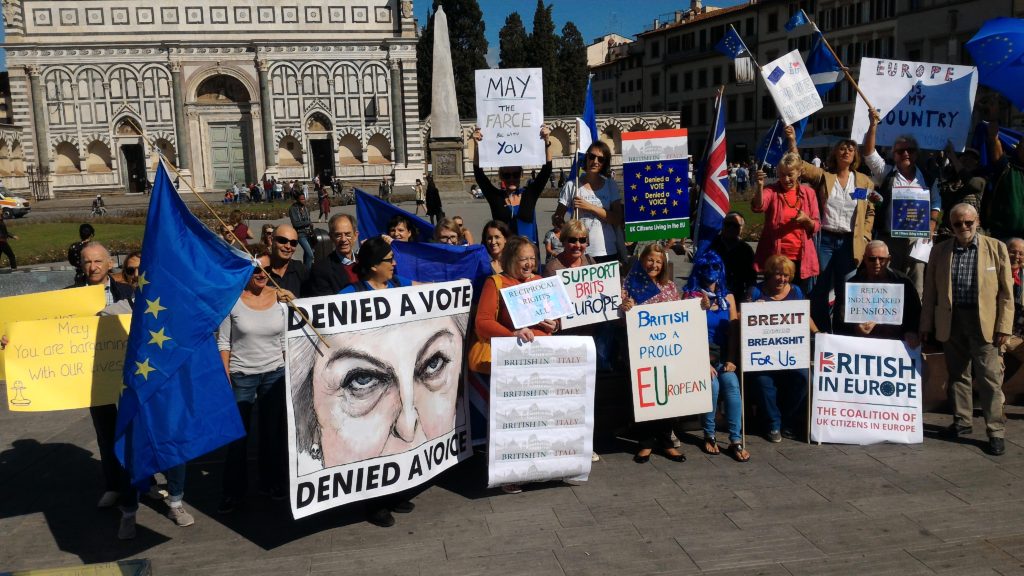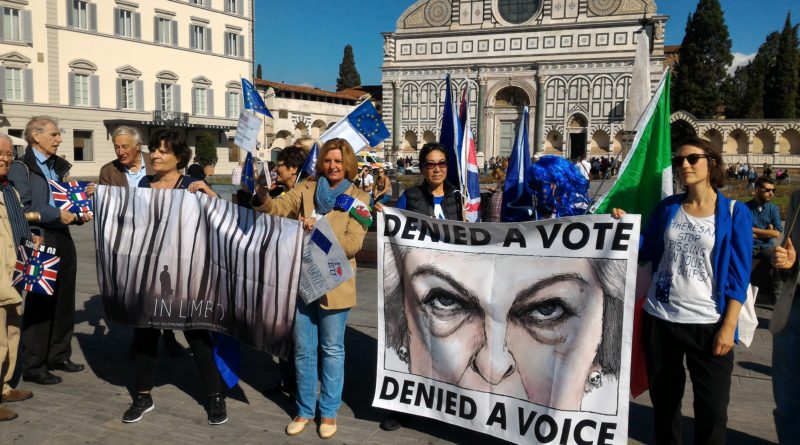What Theresa May Florence speech means for people’ rights
People were waiting with trepidation, but Theresa May’s speech in Florence was not the expected turning point for expatriates on the two sides of the Channel. The speech was meant to end the impasse of Brexit negotiations and the prevalent opinion across Europe is that it went in the right direction, but not far enough. More clarity is needed, including on citizens’ rights, commented European leaders.
The most important promise of the British Prime Minister was that the UK will honour its financial commitments to the EU, a significant departure from the request of Brexit supporters and a stumbling block so far in the exit negotiations.
May also proposed a new treaty on security cooperation and called for a 2-year transition to ensure that a new trade deal is enforced. The remaining 27 EU countries will have to agree on these points.
Citizens’ rights
On the future status of the 3.3 million EU nationals living in the UK and the 1.2 million British in the rest of the EU, Theresa May said:
I want to repeat to the 600,000 Italians in the UK – and indeed to all EU citizens who have made their lives in our country – that we want you to stay; we value you; and we thank you for your contribution to our national life – and it has been, and remains, one of my first goals in this negotiation to ensure that you can carry on living your lives as before.
I am clear that the guarantee I am giving on your rights is real. And I doubt anyone with real experience of the UK would doubt the independence of our courts or of the rigour with which they will uphold people’s legal rights.
But I know there are concerns that over time the rights of EU citizens in the UK and UK citizens overseas will diverge. I want to incorporate our agreement fully into UK law and make sure the UK courts can refer directly to it.
Where there is uncertainty around underlying EU law, I want the UK courts to be able to take into account the judgments of the European Court of Justice with a view to ensuring consistent interpretation. On this basis, I hope our teams can reach firm agreement quickly.
The concession here is accepting that the withdrawal agreement will have direct effect in UK courts, an EU demand to make it immediately operational. For the rest, nothing is new as the UK and the EU had already agreed to interpret the exit agreement based on the case law of the European Court of Justice.
Referring to the 2-year transition period, May said essentially that free movement will continue, although EU nationals will have to register to prepare for a new immigration regime in the UK. This was already foreseen in the proposal for a “settled status’, which is up for negotiation with the EU.
There was confusion on an answer the Prime Minister gave to an Italian reporter. Responding to a question from Rai TV, May said she wanted EU citizens in the UK to “be able to stay and have the same rights as they have at the moment”. But the proposed “settled status” would make significantly more difficult for EU nationals to bring family members to the country. What to believe? Brexit Secretary David Davis clarified to BBC on Sunday that EU nationals won’t keep the current rights on family reunification. More to come after the fourth round of negotiations, which start in Brussels on 25 September.
Reactions
Michel Barnier, chief Brexit negotiator at the European Commission, welcomed the “constructive spirit” of the speech, but said the UK will have to explain its “concrete implications” during talks. On citizens’ rights he added:
EU27 citizens in the United Kingdom must have the same rights as British citizens today in the European Union. These rights must be implemented effectively and safeguarded in the same way in the United Kingdom as in the European Union […]. Prime Minister May’s statements are a step forward but they must now be translated into a precise negotiating position of the UK government.
Guy Verhofstadt, Brexit coordinator at the European parliament took a similar line:
The protection of the rights of our EU citizens living in Britain must be absolute and beyond any doubt. I repeat that the new “settled status”, as proposed by the UK government, is hugely problematic in that respect as it will create an enormous administrative burden and uncertainty for millions of our citizens.
EU leaders’ reactions were a show of unity. The Irish Prime Minister Leo Varadkar and French President Emmanuel Macron also called for more clarity. Italian Prime Minister Paolo Gentiloni said that the “constructive speech” will now have to pass the test of negotiations.
#Brexit da @theresa_may a Firenze un discorso costruttivo e parole importanti su italiani in uk. Ora alla prova del negoziato con UE
— Paolo Gentiloni (@PaoloGentiloni) September 22, 2017
The Swedish Ambassador to the UK:
Constructive tone in #FlorenceSpeech – to be translated into negotiating positions. See reaction from EU negotiator https://t.co/hfhhsjyAk4
— Torbjörn Sohlström (@sohlstromt) September 22, 2017
Poland’s Deputy Foreign Minister Konrad Szymanski said that the protection of EU citizens in the UK and the fulfillment of financial obligations are the conditions to agree on a transitional period.
British in Europe protest

As Theresa May gave the speech, a crowd of some 80 people gathered outside the venue to ask that the rights of expatriates are immediately confirmed.
In a letter to the Prime Minister, British in Europe, a coalition representing 30,000 Brits living across the EU, asked to scrap proposals to make EU nationals in the UK apply for a new “settled status” in favour of a real lifelong guarantee. They fear repercussions for British in Europe could otherwise be disastrous because “reciprocity means reciprocity.”
Claudia Delpero © all rights reserved.
Photo courtesy Gareth Horsfall.
First published on 23 September, with addition of David Davis BBC statement on 24 September 2017.




